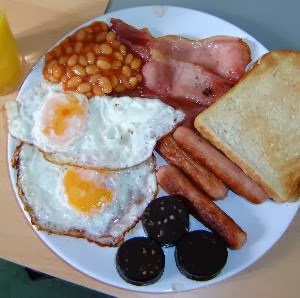 |
| Adnan Januzaj: he's waffly versatile, says the English FA. |
I then browsed the BBC football website and nearly burst out laughing when I read the English FA were looking into the possibility of Januzaj playing for England in 2018 when he would technically qualify on residency grounds. Er, he'll play for Belgium, surely, I thought. Well, the Belgian FA has so far tried and failed. Despite being picked for several squads, Januzaj has so far rejected the call-ups. Admittedly he has further options – Albania, Serbia and Turkey through various family ties – but he was born in Belgium and lived there until the age of 16; wouldn't he consider the country his home?
My general criteria for a player representing a country in international sport has traditionally been either birth in that country or, if not, having at least one parent born there. Of course I've since realised that nowadays that's too rigid. People around the world are constantly moving, whether it's fleeing from war-torn nations or due to the ever-increasing globalisation of business. Passports may exist but does nationality – in the world of sport, at least – definitively exist anymore?
A sizeable chunk of England's cricket team were born in South Africa; for several years Japan had Brazilian-born footballer Alessandro Santos (or Alex), who moved to the country at 16, at the heart of their defence; and even Patrick Vieira was born in Senegal and didn't move to France until eight. When you consider how many national teams are managed by foreigners these days, there's an increasing sense of international football becoming a job rather than an honour.
Jack Wilshere’s ill-timed “England for the English” comment was on the face of it so naïve and outdated it was almost as though Terry ‘Bulldog spirit’ Butcher had hacked into his brain. But then again, does he inadvertently have a point? The English FA is essentially poaching Januzaj for its own gain with no intention of actually making him feel welcome. How would it respond if Januzaj verbally pledged his allegiance to England tomorrow but failed to fulfil his potential, was a one-season wonder at Old Trafford and found himself slugging it out at a mid-table Premier League club as 2018 approached? Thanks but no thanks, no doubt.
 |
| Dear Adnan, eat it or beat it. Lots of love, Jack xxx |
You could argue, of course, that the dilution of traditional notions of nationality within sport began many years ago. For example, Jack Charlton managed the Republic of Ireland and many of his successful teams were built around English-born players who, yes, had Irish connections – usually grandparents – but without wanting to sound harsh would probably have chosen England over Ireland if they could. But they were given the opportunity to play international football and they took it. Who could blame them?
True, I’d have felt out of place skin and eye colour-wise, and I’d have probably closed my eyes during the national anthem – especially if by some miracle England had qualified for the Confederations Cup as well – but after kick-off I would be truly one of them for 90 minutes. Obviously I’d have had to score a freak goal San Marino 1993 style just so Clive Tyldesley could masturbate over his match notes and say: “You may not have heard of the goalscorer but guess where he was born – that’s right, England.” After the game, though, as proud as I would have been to wear the shirt of the country I lived in, ultimately I would still always be an Englishman in exile who got a chance to soak up international football.
 |
| Tahiti: the nation Brazilian football fans adopted in 2013. |
The other person was born in the UK but his heart was very much in Morocco, where much of his extended family still lived. He continually donned the country’s flag in one way or another, whether on a t-shirt or as a Facebook profile pic. He may have held a British passport but how significant did that feel to him? Being a devout Muslim in a country where Islam has become increasingly demonised in the wake of the September 11th bombings, could you blame him for defiantly embracing his roots?
I’ve also met people born in other countries who consider the UK their home and would gladly disown their place of birth altogether if they had the ability to transfer any remaining family members or friends to England; but equally others who would go the other way. Now, I’ve got to admit that if I asked someone with a foreign accent where they were from and they replied “Britain” I’d raise an eyebrow, but in an ever-changing country and world if people consider themselves British, regardless of their origins, that should be good enough.
 |
| Getting to grips with nationality. Women are also available. |






